Fall 2022
Teaching with TCU’s Land Acknowledgment and Native American Monument
with Dr. Pablo Montes
November 14, 2022 from 3:00 PM – 5:00 PM

Dr. Pablo Montes
TCU’s recent adoption of a Native American Land Acknowledgment marks a significant step in the university’s efforts to be more inclusive and to develop mutually beneficial and respectful relationships with Native American nations and communities. Including the Land Acknowledgment on syllabi and websites, and in university activities is becoming more common on our campus. The Land Acknowledgment, and the closely related Native American monument, however, are powerful teaching tools, even for courses not necessarily considered part of the Native American Studies discipline.
Beyond reading and posting the Land Acknowledgment, it can be used to stimulate robust discussions, quiet reflection and contemplation, and critical thinking and writing on course topics and ideas. Students and teachers in far-ranging disciplines such as Business, History, STEM, Fine Arts, Political Science, Education, Religion, Philosophy, Modern Languages, Medicine, Nursing, Social Work, English, Athletics, and more will find the acknowledgment and monument useful in learning and teaching their courses’ concepts.
This workshop will address ways that TCU’s Land Acknowledgment and Native American monument can be used in courses to advance the values embedded within them, provide entry points into course topics, and guide and shape student engagement with course concepts.
In this workshop, participants will:
- Explore the general nature and purpose of land acknowledgments and specific meanings reflected in TCU’s acknowledgment
- Consider particular examples of how TCU’s acknowledgment and monument have been implemented in courses
- Collaborate and work on ways that TCU’s acknowledgment and monument can be applied in their individual courses
By developing relevant applications to their courses and disciplines, participants will help make TCU’s Land Acknowledgment more than a written or read statement.
Read more about teaching with TCU’s Land Acknowledgment and Native American Monument.
Including Institutional History in Your Pedagogy
with Dr. Sylviane Greensword and Dr. Frederick Gooding Jr.
October 28, 2022 from 12:00 PM – 1:00 PM

Dr. Frederick Gooding, Jr.

Dr. Sylviane Greensword
In 2020, the TCU Chancellor and Board of Trustees launched the Race and Reconciliation Initiative (RRI)—an academic taskforce with the charge of investigating and documenting TCU’s relationship with slavery, racism, and the Confederacy. The end goal was not only to gain a deeper understanding of our institutional history, but also to create recommendations to support a campus where everyone is acknowledged, valued, and respected. The RRI has contributed greatly to TCU’s embracing of its active role in understanding and healing our community, our campus, and our classrooms. A culture of engaging pedagogy is instrumental in facilitating this healing process.
This workshop is thus designed to explore ways instructors can integrate the legacies of our complex racial history into our classrooms. At the end of this program, participants will be able to:
- Describe the role of collective memory in shaping campus and community culture
- Navigate campus with an awareness of racial geography
- Identify and describe key events of TCU’s history Locate and utilize information resources as well as RRI platforms that speak directly to your disciplines and/or your students’ cultural backgrounds
Exploring Inquiry-based Learning
with Dr. Mikaela Stewart
October 26, 2022 from 3:00 PM – 5:00 PM

Dr. Mikaela Stewart
Do you love witnessing those “light-bulb” moments when students put the pieces together to understand concepts? Do your students struggle to apply the material they are learning? Do you want to teach students skills in addition to content? Inquiry-based learning techniques may be for you!
In this workshop you will experience guided inquiry-based learning to examine the success of these techniques. These techniques are effective at increasing student learning and decreasing the number of students that drop or fail courses. Inquiry-based learning strategies have been used in large and small courses alike and across many fields as a way to teach students higher-order thinking skills while also delivering content. As an instructor, you’ll observe students work together to discover and apply course material and be able to correct misconceptions before they take root!
After attending this workshop you will be able to:
- Describe an inquiry-based learning classroom from your own experience
- List advantages of incorporating inquiry-based learning techniques into your classroom
- Identify methods for overcoming challenges to inquiry-based learning
Teaching in the Core Curriculum: An Overview
with Dr. Theresa Gaul
Rescheduled: October 26, 2022 from 1:00 PM – 2:00 PM

Dr. Theresa Gaul
The TCU Core Curriculum is the very core of the TCU educational experience. With the goal of increasing faculty literacy and building a culture of engagement around the Core, this workshop presents an overview of the TCU Core Curriculum. It is designed for faculty members who are new to TCU, need a refresher on Core basics, or are interested in proposing a Core course. Topics include how to propose a course for a Core area, finding what you need on the new Core Curriculum website, and handling common advising questions.
By the end of this workshop, you will be able to:
- Distinguish among areas and categories of the Core Curriculum
- Describe the steps for proposing a new course
- Navigate the Core Curriculum website
- Locate answers to common advising questions
Learn more about the Core from Dr. Gaul’s feature in the Frog Blog: Core Curriculum 101.
Teaching and Proposing Writing Emphasis Courses in the Core Curriculum
with Dr. Theresa Gaul and Dr. Carrie Leverenz
October 11, 2022 from 2:00 PM – 3:30 PM

Dr. Carrie Leverenz

Dr. Theresa Gaul
If you’ve thought about proposing a Writing Emphasis (WEM) course or already teach one, you may have questions about how to best integrate writing instruction into your course and support your students in improving their writing skills.
This workshop will review pedagogical best practices in teaching writing in disciplines, provide concrete suggestions for implementing writing in a substantive way in your courses, and offer tips for evaluating and giving feedback on writing.
For those who are interested, the last part of the workshop will explain the submission process and offer tips on how to write a successful proposal.
*You are encouraged to bring a syllabus or assignment that you can refine in the workshop.
Creating Vibrant Learning Communities
with Dr. Ashley English
October 10, 2022 from 2:00 PM – 3:00 PM

Dr. Ashley English
As we collectively heal from difficulties caused by the pandemic, our need for relationships is evident. Students are adjusting to learning loss and feelings of isolation that resulted from significant time spent in virtual learning communities. Faculty members are recovering from challenges related to research productivity, caregiving responsibilities, and rediscovering their work community after being disconnected for extended periods. While we might be eager to explore relationship-building in personal contexts, academic communities can also benefit from reconnection.
The goal of this session is to think about the valuable role relationships play in creating dynamic, rigorous, and joyful learning environments that yield significant academic outcomes. As a 2022 winner of the Deans’ Award for Teaching Excellence, Dr. English will share her experience in personal development coaching, inspiration from inclusive teaching practices, and passion for creating active learning environments to guide a discussion focused on building inclusive, vibrant learning communities that are rooted in relationships.
By participating in this workshop, you will:
- Discuss the benefit of applying a coaching philosophy to your pedagogy
- See examples of active learning and teaching strategies
- Explore ways to enhance your teaching practices through guided reflection activities
- Identify ways to strengthen teacher-student and student-student relationships going forward
Using the Theory of Synectics to Make Meaningful Connections
with Dr. LaTrina Parker Hall
September 29, 2022 from 12:30 PM – 2:30 PM
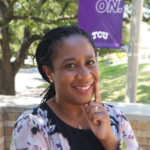
Dr. LaTrina Parker Hall
Synectics is a problem-solving technique, which promotes creative thinking, usually among small groups of people with diverse expertise or backgrounds. The theory of synectics builds on the belief that strong connections can be made between disparate subjects to effectively and meaningfully solve challenging problems and develop creative ideas. Synectics also provides a framework for stronger connections and synergy among collaborators.
In this workshop, Dr. LaTrina Parker Hall will share her personal and professional experiences utilizing synectics as a strategy to make meaningful connections to complex situations while working with students, partners, and colleagues. Participants will engage in an interactive activity that will demonstrate application of the theory as well as applicability to various settings.
By the end of the workshop, participants will be able to:
- Identify the main components of the theory of synectics
- Use the theory to create effective shortcuts to learning
- Understand how to apply the theory to a broad array of personal and professional circumstances
Using Student Response Systems Effectively
with Dr. Ashley Coles
September 19, 2022 from 3:00 PM – 4:00 PM

Dr. Ashley Coles
Many faculty at TCU are using student response systems (SRS) such as clickers and polling software to promote student learning and engagement in fun and creative ways.
This Teaching and Learning Conversation is intended for faculty to share their strategies and experiences with SRS. If you use SRS or are thinking about implementing their use in your classroom, please join us to discuss best practices for effective and engaging classroom activities.
You Belong: How a Residential Framework of Caring Relationships Enhances Learning
with Dr. Jason Titus
September 16, 2022 from 1:00 PM – 2:00 PM

Dr. Jason Titus
In 2008, staff from TCU traveled to Shreveport, Louisiana, to gain insight into Community Renewal International (CRI) and its neighborhood restoration model. TCU Housing staff worked with the CRI team to build a similar model within TCU residential communities to improve student relationships, sense of community, and belonging on campus.
This workshop discusses the fruits of this work, which produced the Knowing. Connecting. Empowering. Residential Framework (KCE). KCE can provide increased belonging in the classroom and programmatic experiences across campus—just as it does in our TCU residential communities—to deliver higher levels of student learning and engagement.
By participating in this workshop, you will:
- Learn the history and current components of the KCE Residential Framework
- Learn how the KCE Residential Framework can translate into classroom and programmatic experiences
- Create a plan of implementation for components of the KCE Residential Framework to positively impact your work
Spring 2022
Building Inclusive Teams
with Dr. Tracey Rockett and Dr. Stacy Landreth Grau
March 25, 2022 from 12:00 PM – 1:00 PM

Stacy Landreth Grau
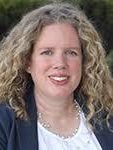
Tracey Rockett
There is a lot of evidence that diverse work teams outperform homogenous ones. Diversity leads to different perspectives shared and better decision-making. Also, diverse teams process information more carefully, are more innovative, and are more likely to engage in productive cognitive conflict. The benefits of diverse work teams should be the same for student teams – greater performance and innovation. Further, it is important to expose our students to diverse teams and teach them how to work through their differences, as it is likely that their future workplaces will be more diverse than the student population at TCU.
However, building diverse teams isn’t without risk, as diverse teams produce lower satisfaction for members and more interpersonal conflict than homogenous teams without proper support. One must emphasize inclusion, as well as diversity, to create the highest performing teams. Building an inclusive team means that you are creating a supportive environment where everyone’s voice is welcome and everyone feels like they belong.
This Teaching and Learning Conversation will demonstrate how to build and support inclusive teams for maximum performance, in any environment. We will discuss types of diversity, how to build teams to balance diversity and inclusion, and how to help diverse teams build cohesion. In addition to sharing best practices in the field and our experiences leading group projects, we will also present data gathered from TCU students about their perspectives on diverse teams and what they find works best for them.
Beyond Attendance and Participation: Using Student Response Systems Effectively
with Dr. Ashley Coles
March 23, 2022 from 3:00 PM – 5:00 PM

Ashley Coles
When used effectively, student response systems (SRS) such as clickers offer a powerful tool to promote student learning and engagement. This workshop will introduce some popular SRS and demonstrate how they can be used to provide real-time assessment, promote collaborative learning, encourage discussion, keep students attentive and accountable, solicit student feedback and questions, and provide an anonymous method for students to venture guesses on challenging material or express opinions on divisive subjects. SRS add a fun dynamic that enhances the learning experience and promotes efficient use of class time.
The discussion will include key considerations such as whether to use electronic devices or low-tech options such as placards, different methods of assessment, and an introduction to SRS options such as iClicker, Top Hat, and Kahoot. Most of the activities will be demonstrated on iClicker, including:
- How to run a basic poll
- How to use polls to facilitate discussion and collaboration
- When and how to use anonymous polling
- How to poll with open-ended questions
- How to use self-paced polling for quizzes and homework
- How to grade responses and import scores to TCU Online
- Common challenges with the iClicker software and using SRS in general
Throughout the workshop, participants will evaluate the demonstrated SRS implementation methods for potential application in their own classroom.
Teaching Human-Animal Studies
with Dr. Dave Aftandilian, Dr. Carol Thompson, Dr. Mauricio Papini, and Chris Powell
February 25, 2022 from 3:00 PM – 5:00 PM
What do other than human animals mean to us, and what do we mean to them? How do we impact each others’ lives, for good or ill? And how can we teach our students about these topics in a way that is intellectually rigorous, yet also caring and respectful of the deep emotional ties many of us feel to animals? In this workshop, four experienced instructors, each from a different discipline and all affiliated with TCU’s Human-Animal Relationships minor, will share a specific pedagogical practice they have used multiple times to successfully teach human-animal studies.
Presenters and topics will include:
- Dave Aftandilian (Anthropology) on contemplative practices for knowing animals
- Carol Thompson (Sociology) on developing new views of the zoo through an ethnography project
- Mauricio Papini (Psychology) on scientific observations of animal behavior
- Chris Powell (Studio Art) on using found materials such as wood to make animal imagery
Each presenter will briefly describe their overall learning goals and specific details for each project, as well as lessons they have learned and changes they have made to the projects over time. Attendees will also be encouraged to share their own pedagogical practices for teaching human-animal studies, so that we can all learn from each other.
This workshop is co-sponsored by the Human-Animal Relationships Minor (HARE).
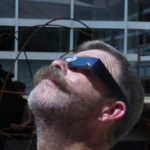
Chris Powell

Mauricio Papini
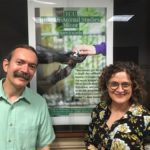
Dave Aftandilian & Carol Thompson
Fall 2021
Building Inclusive Teams
with Dr. Tracey Rockett and Dr. Stacy Landreth Grau
November 12, 2021 from 1:00 PM – 2:00 PM

Stacy Landreth Grau

Tracey Rockett
There is a lot of evidence that diverse work teams outperform homogenous ones. Diversity leads to different perspectives shared and better decision-making. Also, diverse teams process information more carefully, are more innovative, and are more likely to engage in productive cognitive conflict. The benefits of diverse work teams should be the same for student teams – greater performance and innovation. Further, it is important to expose our students to diverse teams and teach them how to work through their differences, as it is likely that their future workplaces will be more diverse than the student population at TCU.
However, building diverse teams isn’t without risk, as diverse teams produce lower satisfaction for members and more interpersonal conflict than homogenous teams without proper support. One must emphasize inclusion, as well as diversity, to create the highest performing teams. Building an inclusive team means that you are creating a supportive environment where everyone’s voice is welcome and everyone feels like they belong.
This Teaching and Learning Conversation will demonstrate how to build and support inclusive teams for maximum performance, in any environment. We will discuss types of diversity, how to build teams to balance diversity and inclusion, and how to help diverse teams build cohesion. In addition to sharing best practices in the field and our experiences leading group projects, we will also present data gathered from TCU students about their perspectives on diverse teams and what they find works best for them.
Design Thinking for Student Engagement
with Dr. Stacy Landreth Grau and Dr. Tracey Rockett
October 22, 2021 from 2:00 PM – 4:00 PM

Tracey Rockett

Stacy Landreth Grau
Design thinking (also called human centered design) is a framework for critical thinking and creative problem solving that has been used in a variety of contexts – engineering, business, design, liberal arts, education, healthcare, and so many more. Universities are creating programs and centers around design thinking to help break down silos, to provide a common “language” for students from a variety of majors, and to teach students ways to approach “wicked programs” with a new design mindset.
At Idea Factory, we are hoping to do the same.
This Pedagogy in Practice session will address using elements of design thinking to create student centered learning experiences. We will show how to use the framework on two levels – how to use it to design learning experiences within your course and also how to teach elements of the framework within your context. This is important based on what we have learned during the pandemic – that students need to be engaged on multiple levels.
In this session, you will:
- learn a student-centered design framework that provides a pathway for critical thinking and creative problem solving;
- learn ways that design thinking can be used to create deeper learning experiences in your class;
- learn ways that you can teach elements of design thinking to students in order for them to increase their creative confidence.
This session will conclude with the development of a faculty interest group to continue the conversation around human centered design, and to provide opportunities for faculty and staff to collaborate across departments, colleges, and even with other universities to design more engaging and experiential courses for TCU students.
Leveraging Virtual Tools for In-Person Learning
with Annie Cowden
October 19, 2021 from 10:00 AM – 12:00 PM

Annie Cowden
Ready to ditch the computer and get back into the classroom? Not so fast! Returning to in-person learning shouldn’t mean eliminating all virtual tools. Instead of abandoning everything from the last year, leverage your knowledge of virtual learning to enhance the in-person classroom experience. In this workshop, you will learn how to use a variety of technologies to assess students in real time, create meaningful conversations, encourage equal participation across students, increase peer interaction and student-driven content, and transition seamlessly between in-person and virtual work.
By now, many of us know about Kahoot! and Zoom breakout rooms, but feel stuck in terms of how else we can engage students virtually. No matter your skill level, this workshop will help you explore digital learning tools that can be used for in-person, hybrid, and virtual learning. The tools shared in this workshop will allow you to create impactful classroom learning and to keep the class running in the face of illness or absence. The next time you are called away to a conference, you can use these techniques to avoid cancelling class and keep students learning. The best part is that many of the tools will enhance student learning without creating additional assignments for you to grade.
As a sneak peek, here are just a few of the technologies we will cover: Poll Everywhere, Equity Map, Wizer.Me, Google Slides, Box, and Pear Deck. Feel like you’re already a pro? This workshop will also explore new ways to utilize familiar technologies for greater student learning.
Grading Less, Learning More: Ethical Assessment Practices for Student Agency
with Dr. Jason Helms and Dr. Jessica Zeller
September 10, 2021 from 2:00 PM – 4:00 PM
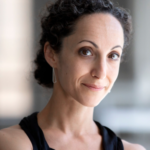
Jessica Zeller

Jason Helms
Despite their prevalence, traditional grading methods are far from popular. Recent scholarship has made the compelling case that traditional methods are ineffective, unfair, and unethical (Bloom 2020; Eyler 2018; Friend 2021; Stommel, et al. 2020). Fortunately, alternative grading approaches have also been proposed and tested. This workshop will cover three of those approaches: contract grading, learning records, and ungrading. The presenters have experience with each of the approaches, and will discuss each method’s pedagogical framework as well as their personal experience using them.
Contract grading: Inoue’s labor-based contract grading aims at an antiracist evaluation method. Students track their time spent on various assignments and class-participation. Grades are tied to amount of assignments completed (determined by instructor) and student labor.
Learning Records: Syverson’s learning record system asks students to track their own work, and evaluate themselves three times: the first day of class, midterm, and final. The second and third of these evaluations include a grade estimate. Essentially, students argue for their own grade.
Ungrading: An approach to assessment that prioritizes intrinsic motivation, meta-cognition, and the feedback loop over ratings and rankings. Without a sole representative design model, ungrading approaches can be flexibly implemented: from individual assignments to entire courses.
The workshop will be organized as a series of presentations and discussions, and it will conclude with the development of a faculty interest group so interested faculty can continue to try these new approaches and discuss pedagogic developments.
Spring 2020
Calling Out / Calling In: Facilitating Classroom Conversations on Challenging Concepts
with Dr. Margaret Lowry
Cancelled due to COVID
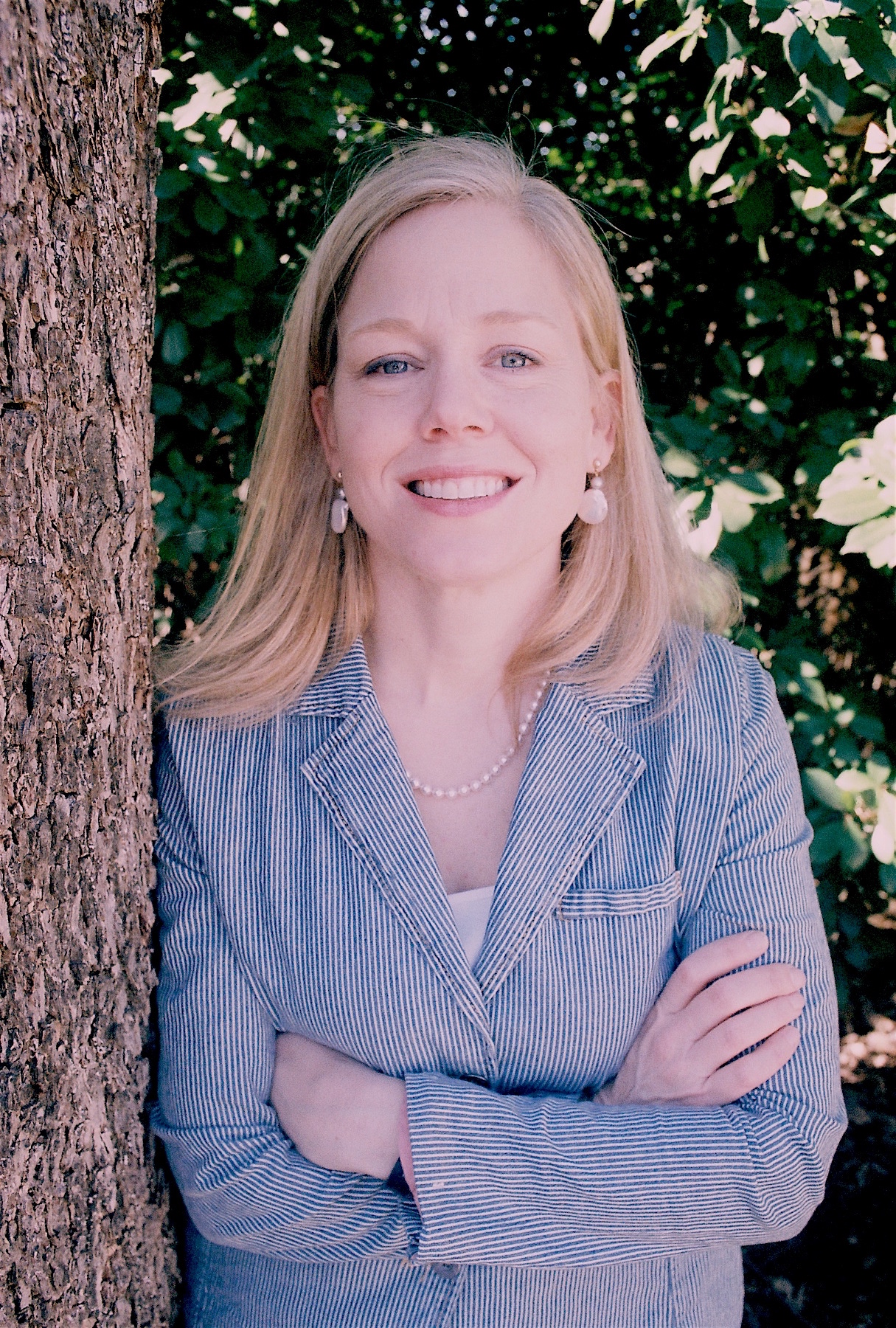
Margaret Lowry
Facilitating classroom conversations about difficult topics can be challenging for many reasons. Faculty members often don’t feel prepared to respond to students who make comments that are sexist, racist, or heterosexist, even when those students are earnestly trying to grapple with course texts and concepts. On the flip side, students who are eager to learn more about controversial topics are often too scared to voice their ideas for fear of being called out, shamed, or labeled as ignorant. As longtime social justice advocate and public intellectual Loretta Ross argues, “Call-outs make people fearful of being targeted. People avoid meaningful conversations when hypervigilant perfectionists point out apparent mistakes, feeding the cannibalistic maw of the cancel culture.”
The challenges of helping students feel more comfortable discussing challenging topics is intertwined with our own abilities as instructors to feel confident about how to handle the ill-informed or hurtful comments that students sometimes unintentionally make as they grapple with the concepts they are learning.
This workshop addresses ways for instructors to create a class climate in which students feel comfortable thinking through their ideas out loud and faculty members have tools for “calling in” students whose comments are unintentionally inappropriate. As Ross argues, “Calling-in engages in debates with words and actions of healing and restoration, and without the self-indulgence of drama.”
In this workshop, instructors will learn how to:
- Create a “call-in” statement for the course syllabus
- Work with students to develop effective community guidelines for class discussion
- “Call in” students who unintentionally make ill-informed or hurtful comments
This workshop meets Koehler Center Outcomes 1.1, 1.2, 2.1, 2.2
Interrogating Whiteness in the Higher Ed Classroom
with Dr. Breinn Richter
Cancelled due to COVID
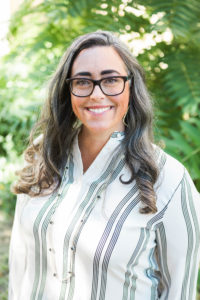
Breinn Richter
As White researchers, educators, and practitioners in predominately-White organizations, understanding how we perpetuate racial inequities in our higher education classrooms is the key to truly embracing campus diversity and inclusion initiatives. As educators, it is our job to create classroom spaces where students engage in transformational learning through critical self-reflection, as well as embrace the possibility of pursuing social or political risk to improve the education of others. We must commit to examining our own core beliefs as a starting point, dissect them in order to understand how our beliefs frame our thoughts and behavior, then question them continuously, as these beliefs serve as the foundation for learning/un-learning and action in the classroom.
So how do we do this within predominately-White, traditionally-structured classroom environments? We interrogate Whiteness by seeking to understand how we, as White educators, perpetuate inequities in our curriculum design and instructional practices. First, we must recognize the work we do in higher education is done within the bounds of White-dominated, patriarchal, hierarchical, capitalist systems of oppression and power. As educators then, we must evolve beyond mere tolerance into truly anti-racist teaching – learning to embrace a radical posture in order to deconstruct oppressive structures while reconstructing human agency and resistance. Critically interrogating Whiteness in the classroom requires a political critique of prevailing relationships, social structures, and symbol systems where we seek to understand the forces and patterns behind, within, or beyond the dominant ideas and structures which inform our lives. As critically-minded educators (and teacher-learners), we must learn to embrace temporary actions of resistance and become comfortable in the discomfort of constant change, the possibility of failure, the transparency of vulnerability, and the recognition of personal, positional risk.
Supporting Mental Health in Your Students
with Brad Stewart & Yvonne Giovanis
March 5, 2020 from 1:00 PM – 3:00 PM
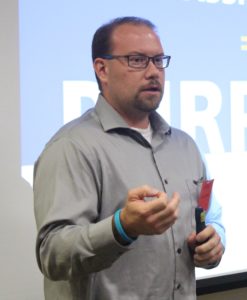
Brad Stewart
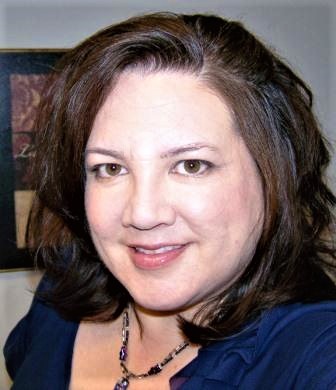
Yvonne Giovanis
The status of students’ mental health is a growing concern for universities across the nation. From the National Collegiate Health Assessment, three of the top five impediments to academic performance as reported by TCU students are stress, anxiety, and depression. Faculty play a key role in recognizing the warning signs of mental health and facilitating referrals. Question, Persuade, Refer (QPR) is a nationally recognized workshop which trains individuals to become “gatekeepers.” According to the Surgeon General’s National Strategy for Suicide Prevention (2001), a gatekeeper is someone in a position to recognize a crisis and the warning signs that someone may be contemplating suicide. This training will provide faculty with the tools to identify warning signs and risk factors for suicide and poor mental health, will cover how to ask a student if they are having thoughts of suicide, and how to refer these students to a variety of campus resources for help. We will finish with a deeper discussion for strategies on how faculty can support the mental health of their students.
Pronoun Fluency Workshop: Creating Safer Spaces Through Inclusive Language
with Lindsay Knight & Dr. Nino Testa
January 19, 2020 from 2:00 PM – 4:00 PM

Lindsay Knight
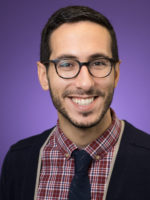
Nino Testa
This workshop is designed to give faculty and staff an opportunity to develop familiarity with pronoun usage and strategies of address. Do you have questions about non-binary pronouns? Do you keep calling someone in your life by the wrong pronouns? Are you unsure how to talk to new people without gendering them? This workshop includes practical, hands-on opportunities to improve your knowledge or usage of pronouns, especially if you struggle to get other people’s pronouns right. We will also share best practices for inclusion of this information into syllabi and classroom settings. All genders and identities are welcome.
Bystander to Upstander
with Dr. Nada Elias-Lambert
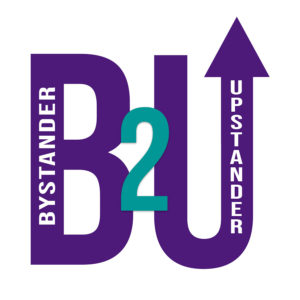 The Bystander to Upstander workshop empowers participants to transform from bystanders to upstanders in order to build communities that support difference and unify against intolerance. An upstander is an individual who chooses to take positive action in the face of injustice or intolerance.
The Bystander to Upstander workshop empowers participants to transform from bystanders to upstanders in order to build communities that support difference and unify against intolerance. An upstander is an individual who chooses to take positive action in the face of injustice or intolerance.
Participants will learn how to identify harmful behaviors such as sexual violence, racism, and sexism. Participants will also learn and apply upstander skills to impact positive change and promote a culture of nonviolence. This interactive workshop allows each participant to practice upstander strategies that match their personality and comfort level.
Bystander to Upstander: Transforming Culture
- February 4, 2020 9:00 AM – 11:00 AM
- February 10, 2020 1:00 PM – 3:00 PM
Bystander to Upstander: Train-the-Trainer
- February 20, 2020 9:00 AM – 11:00 AM
- February 26, 2020 10:00 AM – 12:00 PM
Fall 2019
Writing Workshop: Being a Productive Teacher-Scholar
with Dr. Michelle Bauml
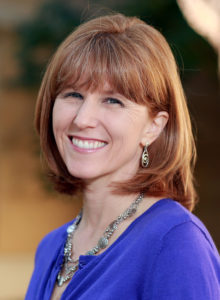
Michelle Bauml
Both before and after tenure, managing responsibilities of scholarship, teaching, and service can be challenging. Numerous books and articles offer recommendations for establishing and maintaining a healthy publication record. Many faculty members experience the pre-tenured frenzy to “publish or perish,” the post-tenured writing slump, or the challenge of protecting writing time within a sea of other obligations. This two-part workshop will bring together faculty members of all ranks, departments, and disciplines to offer support in the area of scholarship.
Part 1 of 2
September 24, 2019 from 8:30 AM to 9:45 AM
In the first session, we will explore various productivity tips, set writing goals, and organize accountability groups as needed. First, attendees will identify challenges to scholarly productivity and discuss strategies they have used in the past to address those challenges. We will examine several recommendations for making time to write. Steve Sherwood from the William L. Adams Center for Writing will help attendees identify specific, measurable goals for scholarship, and map writing plans for the semester. Attendees seeking accountability as they work toward their goals will have an option to form or join a writing group.
Part 2 of 2
November 19, 2019 from 8:30 AM to 9:45 AM
In the second session, attendees will review writing goals, discuss progress, and determine next steps. Here, attendees will create a plan to maintain productivity as the winter break approaches and a new semester begins.
Inclusive Teaching 101
with Dr. Margaret Lowry
November 11, 2019 from 9:00 AM – 11:00 AM

Margaret Lowry
What is inclusive teaching? How does inclusive teaching benefit instructors and students? How can instructors use the principles of inclusive teaching to revise our courses in large and small ways? This workshop is a great first step for those who are interested in learning more about inclusive teaching.
First, we will discuss the principles and benefits of inclusive teaching. Next, we will consider how inclusive teaching principles can inform our teaching across disciplines. Finally, we will focus on a key aspect of inclusive teaching: students’ sense of belonging in the classroom. Research shows that students’ sense of belonging plays a key role in their motivation, engagement, and performance. But why is fostering students’ sense of belonging part of our responsibility as instructors? And what can we do to increase students’ feelings of belonging in our courses? Strategies introduced in this workshop will help instructors develop a course syllabus and classroom climate that incorporate diverse perspectives and foster student engagement and motivation.
In this workshop, instructors will learn the following:
- Common principles of inclusive teaching
- How inclusive teaching benefits instructors and students
- How to apply the principles of inclusive teaching to your own discipline and teaching style
- What research says about how a sense of belonging benefits students’ motivation, engagement, and performance
- How to foster students’ sense of belonging
Instructors will leave the workshop with practical ideas for how to incorporate inclusive teaching strategies in your courses for Spring 2020.
Creating a Culture of Wellness
with Yvonne Giovanis & Brad Stewart
October 9, 2019 from 2:00 PM – 3:00 PM

Yvonne Giovanis

Brad Stewart
Wellness-related issues are a top concern for our students. According to TCU’s most recent National College Health Association data, the top 5 self-reported impediments to academic success for TCU students are: (1) stress; (2) anxiety; (3) sleep difficulties; (4) depression; (5) illness. Also included in the top ten are issues related to relationships (family or significate others), substance use, and musculoskeletal issues. Clearly, the demands faced by our students are affecting their ability to thrive.
Fortunately, there are multiple departments at TCU dedicated to the health and wellness of our students. These departments provide a variety of trainings, dialogues, and experiences for students that aim to increase help-seeking behavior and promote positive bystander responses. In this workshop, we will discuss the wellness opportunities provided to students, what TCU is doing to create a culture of wellness on campus, and how professors can support these efforts in- and outside the classroom.
Creating an Inclusive Environment with the Interpersonal Classroom Model
with Dr. Tee Tyler
October 7, 2019 from 2:00 PM – 4:00 PM
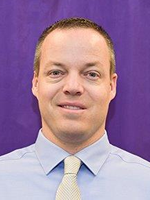
Tee Tyler
The Interpersonal Classroom Model (ICM) places student-to-student dialogue as the central focus of classroom instruction (Tyler, 2017). The ICM employs weekly experiential dialogue groups, Qualtrics evaluation surveys, and online reflection journals to enhance student learning. This approach is guided by experiential learning theory (Kolb, 2015), which describes learning as a four-phase cycle: concrete experience, reflective observation, abstract conceptualization, and active experimentation. The ICM employs each phase on a weekly basis. Each week, students participate in an experiential dialogue group (concrete experience), complete surveys and reflection journals (reflective observation), apply course content to their classroom experiences (abstract conceptualization), and set new goals for the following week (active experimentation).
Educators can use this approach in any dialogue-focused university course as a mechanism to encourage students to learn from the diverse perspectives of other students in the classroom. This Pedagogy in Practice workshop will make the ICM teaching approach accessible to any TCU educator interested in using this approach in their classroom. Attendees will learn how to immediately apply the ICM teaching approach protocol, how to integrate technology in the classroom in a manner that enhances face-to-face learning, and how to measure student progress using a pretest and posttest rating scale.
Pronoun Fluency Workshop: Creating Safer Spaces Through Inclusive Language
with Lindsay Knight & Dr. Nino Testa
September 23, 2019 from 2:00 PM – 4:00 PM

Lindsay Knight

Nino Testa
This workshop is designed to give faculty and staff an opportunity to develop familiarity with pronoun usage and strategies of address. Do you have questions about non-binary pronouns? Do you keep calling someone in your life by the wrong pronouns? Are you unsure how to talk to new people without gendering them? This workshop includes practical, hands-on opportunities to improve your knowledge or usage of pronouns, especially if you struggle to get other people’s pronouns right. We will also share best practices for inclusion of this information into syllabi and classroom settings. All genders and identities are welcome.
Bystander to Upstander
with Dr. Nada Elias-Lambert
 The Bystander to Upstander workshop empowers participants to transform from bystanders to upstanders in order to build communities that support difference and unify against intolerance. An upstander is an individual who chooses to take positive action in the face of injustice or intolerance.
The Bystander to Upstander workshop empowers participants to transform from bystanders to upstanders in order to build communities that support difference and unify against intolerance. An upstander is an individual who chooses to take positive action in the face of injustice or intolerance.
Participants will learn how to identify harmful behaviors such as sexual violence, racism, and sexism. Participants will also learn and apply upstander skills to impact positive change and promote a culture of nonviolence. This interactive workshop allows each participant to practice upstander strategies that match their personality and comfort level.
Bystander to Upstander: Transforming Culture
- September 20, 2019 9:00 AM – 11:00 AM
- October 1, 2019 1:00 PM – 3:00 PM
Bystander to Upstander: Train-the-Trainer
- October 7, 2019 9:00 AM – 11:00 AM
- October 17, 2019 1:00 PM – 3:00 PM


